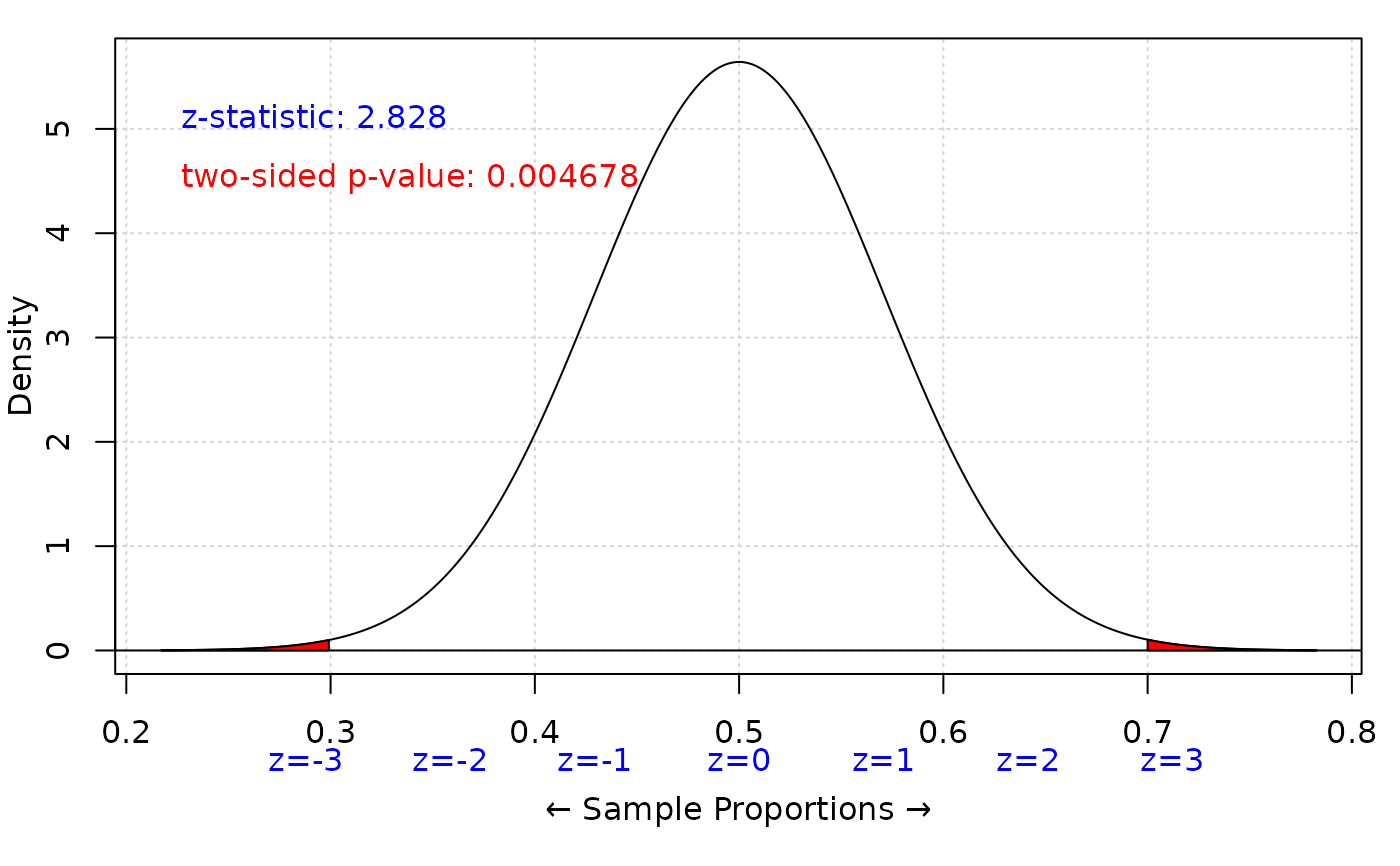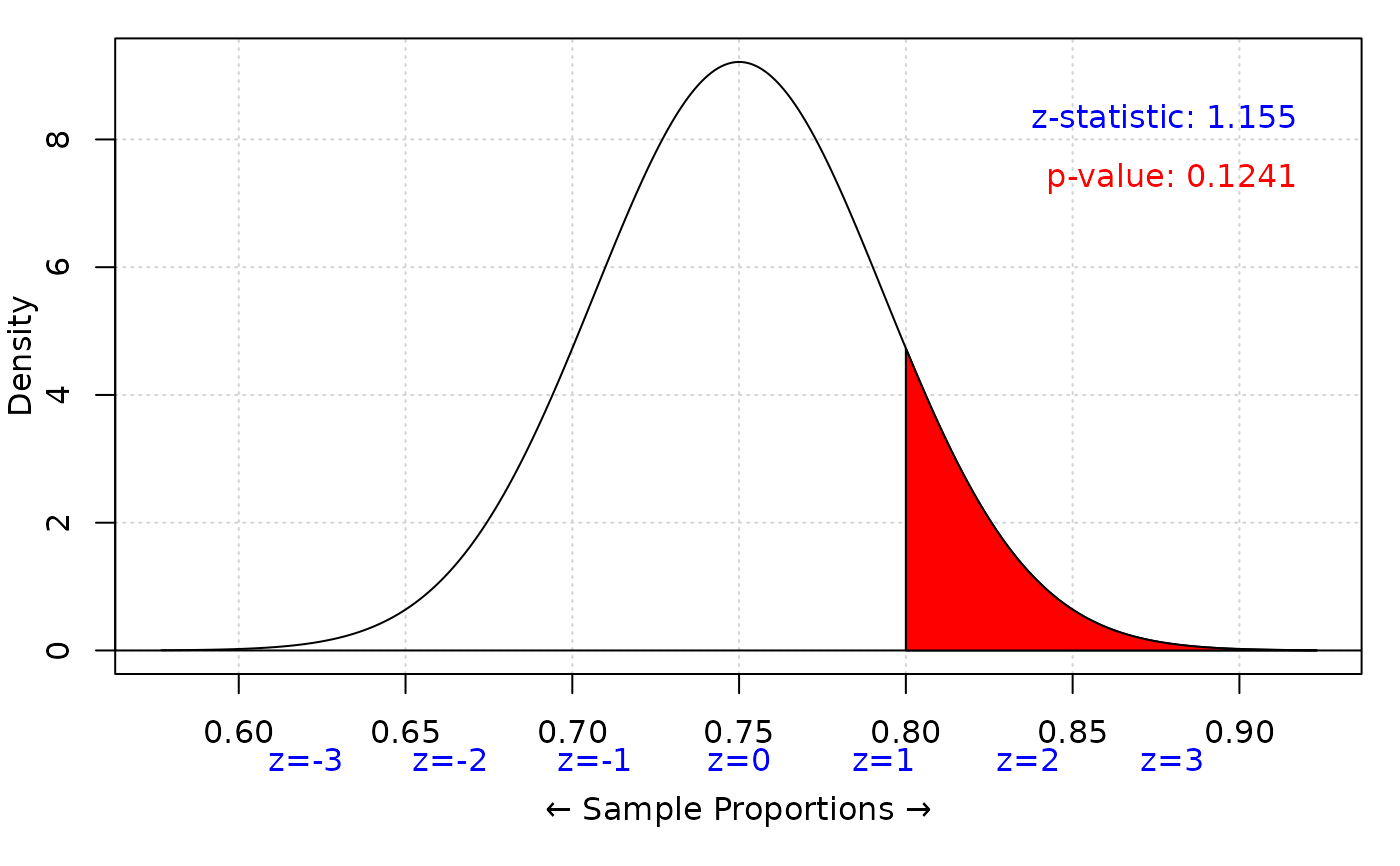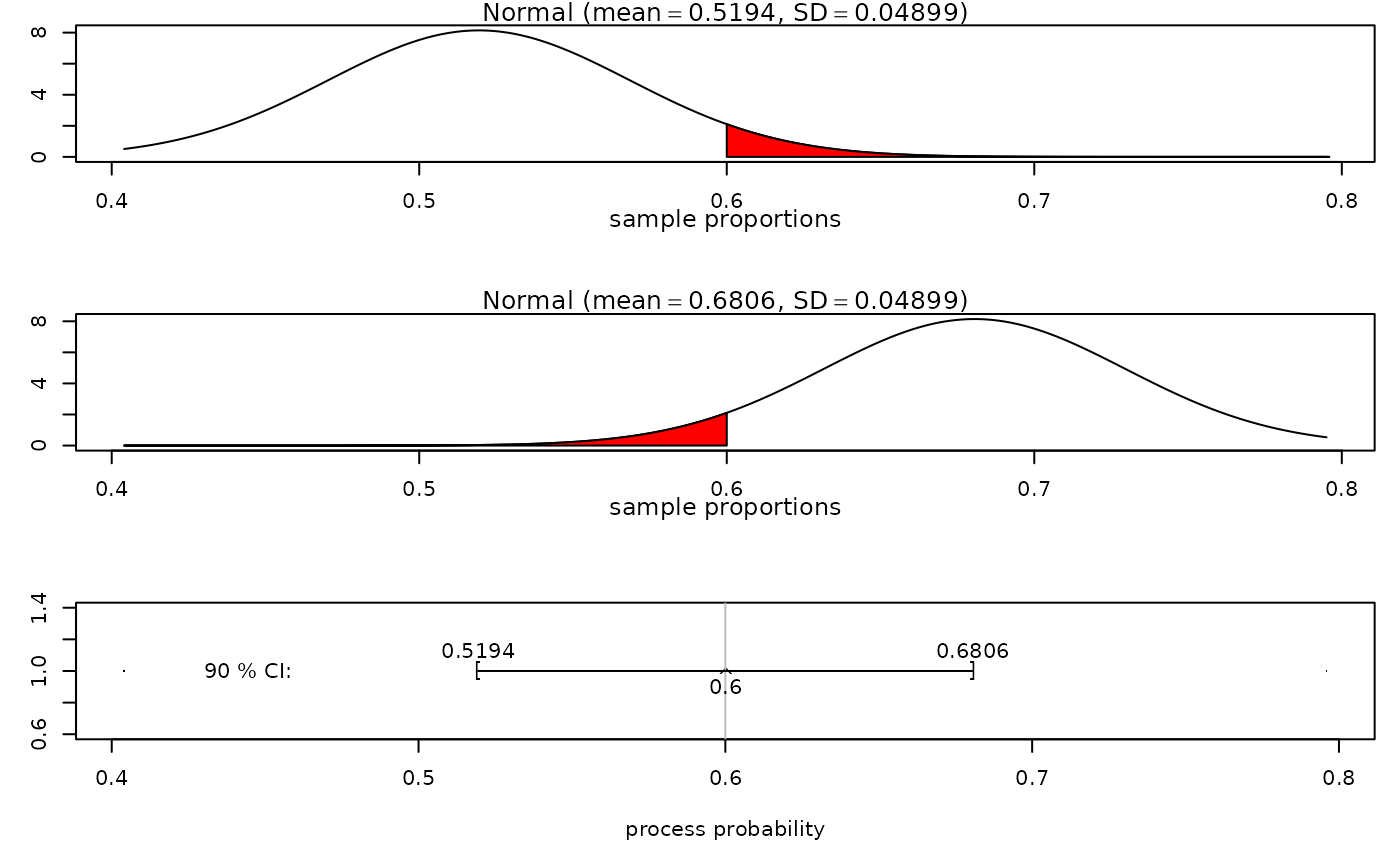iscamonepropztest calculates a one-proportion z-test and/or a corresponding confidence interval.
Usage
iscamonepropztest(
observed,
n,
hypothesized = NULL,
alternative = "two.sided",
conf.level = NULL,
verbose = TRUE
)Arguments
- observed
The observed number of successes. If a value less than 1 is provided, it is assumed to be the sample proportion.
- n
The sample size.
- hypothesized
(optional) hypothesized probability of success under the null hypothesis.
- alternative
(optional) character string specifying the form of the alternative hypothesis. Must be one of "less", "greater", or "two.sided".
- conf.level
(optional) confidence level(s) for a two-sided confidence interval.
- verbose
Logical, defaults to
TRUE. Set toFALSEto suppress messages
Value
This function prints the results of the one-proportion z-test and/or the confidence interval. It also generates plots to visualize the test and interval.
Examples
iscamonepropztest(observed = 35, n = 50, hypothesized = 0.5)
#>
#> One Proportion z test
#>
#> Data: observed successes = 35, sample size = 50, sample proportion = 0.7
#>
#> Null hypothesis : pi = 0.5
#> Alternative hypothesis: pi <> 0.5
#> z-statistic: 2.828
#> p-value: 0.004678
 iscamonepropztest(
observed = 0.8,
n = 100,
hypothesized = 0.75,
alternative = "greater",
conf.level = 0.95
)
#>
#> One Proportion z test
#>
#> Data: observed successes = 80, sample size = 100, sample proportion = 0.8
#>
#> Null hypothesis : pi = 0.75
#> Alternative hypothesis: pi > 0.75
#> z-statistic: 1.155
#> p-value: 0.1241
iscamonepropztest(
observed = 0.8,
n = 100,
hypothesized = 0.75,
alternative = "greater",
conf.level = 0.95
)
#>
#> One Proportion z test
#>
#> Data: observed successes = 80, sample size = 100, sample proportion = 0.8
#>
#> Null hypothesis : pi = 0.75
#> Alternative hypothesis: pi > 0.75
#> z-statistic: 1.155
#> p-value: 0.1241
 #> 95 % Confidence interval for pi: ( 0.7216014 , 0.8783986 )
iscamonepropztest(observed = 60, n = 100, conf.level = 0.90)
#>
#> One Proportion z test
#>
#> Data: observed successes = 60, sample size = 100, sample proportion = 0.6
#>
#> 90 % Confidence interval for pi: ( 0.519419 , 0.680581 )
#> 95 % Confidence interval for pi: ( 0.7216014 , 0.8783986 )
iscamonepropztest(observed = 60, n = 100, conf.level = 0.90)
#>
#> One Proportion z test
#>
#> Data: observed successes = 60, sample size = 100, sample proportion = 0.6
#>
#> 90 % Confidence interval for pi: ( 0.519419 , 0.680581 )
